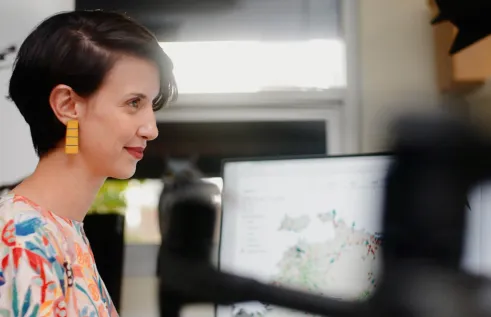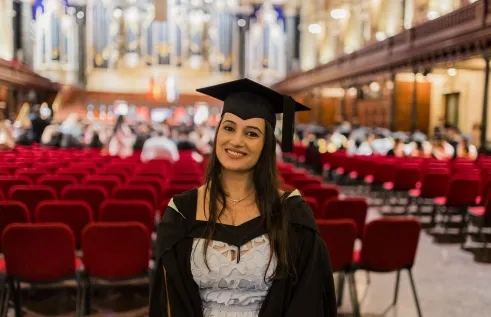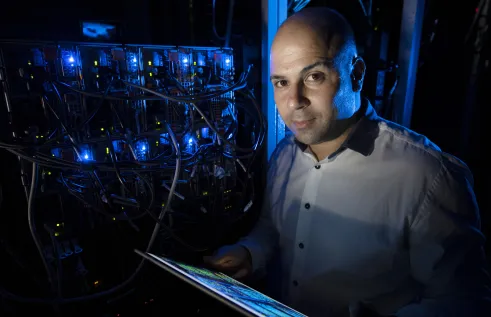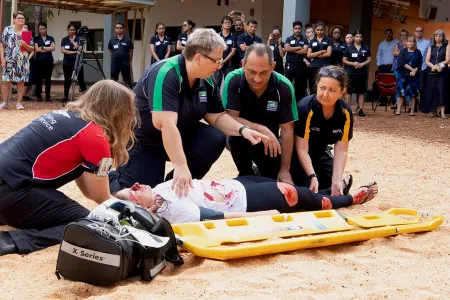Aeromedical Retrieval postgraduate program takes off
From left, Associate Professor Mardi Steere, Senior Lecturer Nadine Tipping, Associate Professor Peter Archer and Senior Lecturer Jodie Mills
Managing aeromedical retrieval in extreme climatic conditions will be one of the subject areas taught in Charles Darwin University’s newest postgraduate courses.
The only Master’s Aeromedical Retrieval course in Australia and a Graduate Certificate are now underway at CDU.
The courses are a partnership between CDU, the National Critical Care and Trauma Response Centre (NCCTRC), Careflight and Royal Flying Doctor Service.
Funding from the NCCTRC has enabled scholarships to be offered to four clinicians from Fiji and Papua New Guinea to study towards the Graduate Certificate, along with eight NT and interstate students.
Four interstate students have begun the Master’s degree.
Adjunct Professor Dianne Stephens, who is the NCCTRC Medical Director, said the quality of the international scholarship candidates was so high that the Centre had extended its support from an initial two to four places.
“If you look at Australia, remote rural communities absolutely rely on aeromedical retrieval as well as the island nations in our region,” Professor Stephens said.
The subject ‘Human Systems at Extremes’, to be taught in Semester Two this year, will deal with aeromedical retrieval and the effects of climate change.
“Unfortunately, climate change has meant that natural disasters are increasing,” Professor Stephens said.
Content will cover emergencies in extreme temperatures as well as high altitudes and under the sea.
“They are very niche areas and we have exposure to people who actually do that work,” she said.
The courses are taught by 16 senior practitioners of trauma response and aeromedical retrieval including Professor Stephens, Adjunct Associate Professor, Mardi Steere, Executive General Manager RFDS Medical & Retrieval Services SA/NT and Adjunct Senior Lecturer Paul Bell.
Professor Stephens has extensive experience in managing critical care and retrievals after mass casualty events including the Bali bombings and in Iraq.
As a paediatric emergency physician, Associate Professor Steere has worked in the US, Australia and Kenya where she was Clinical Director of a 348-bed hospital.
Mr Bell has worked in civilian and military trauma in Afghanistan and in the Bali bombings.
Related Articles

CDU investing in research with new three-year scholarships
Charles Darwin University (CDU) is continuing its push to attract Higher Degree by Research (HDR) students with a new multi-million-dollar scholarship fund.
Read more about CDU investing in research with new three-year scholarships
CDU students set to graduate at Sydney ceremony
More than 150 students are set to graduate from Charles Darwin University (CDU) today at a ceremony held at Sydney’s Town Hall, in a first for the University.
Read more about CDU students set to graduate at Sydney ceremony
New record of CDU researchers among the most influential in the world
Researchers from Charles Darwin University (CDU) have enhanced their global reputations as some of the most influential in their fields in the world.
Read more about New record of CDU researchers among the most influential in the world
